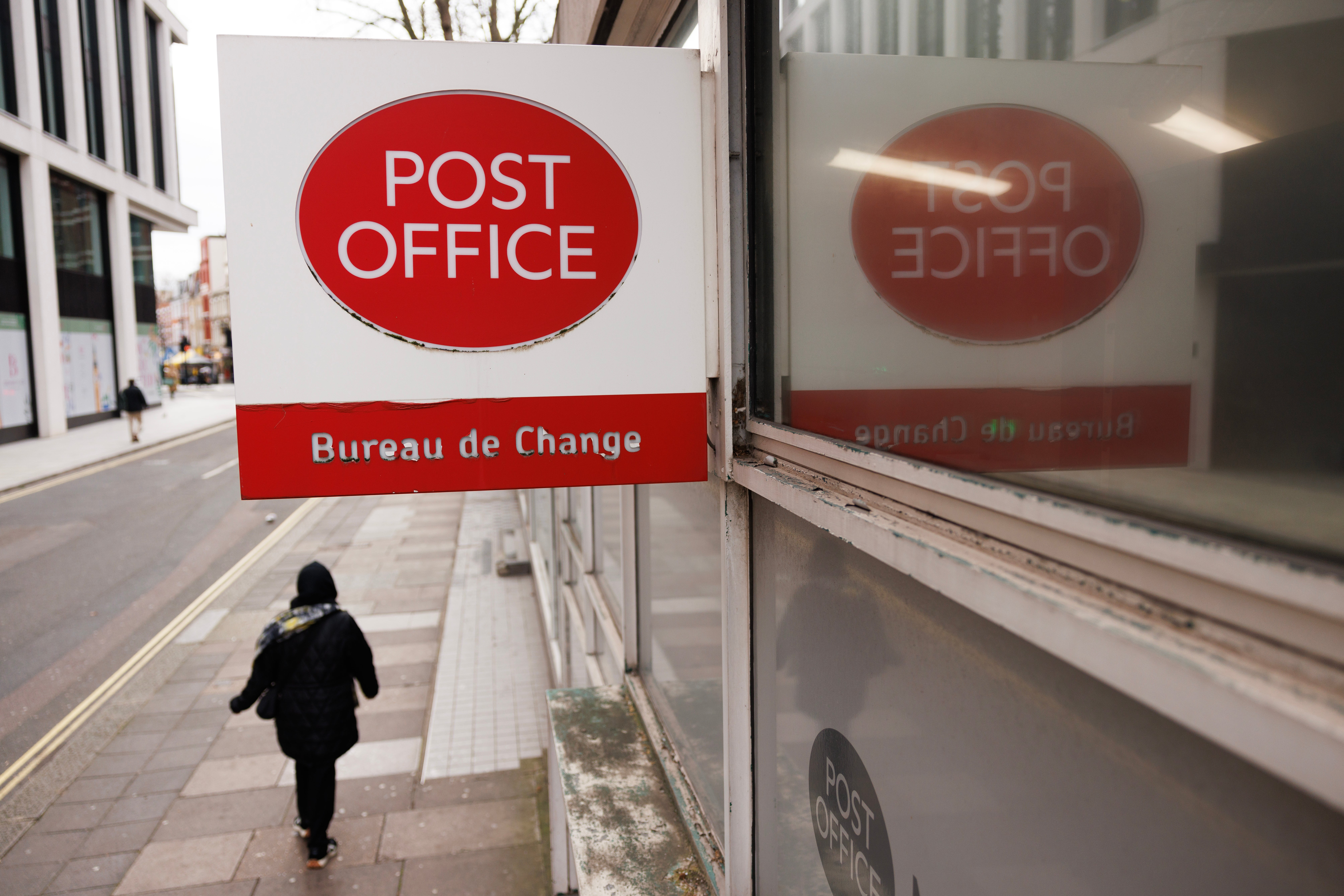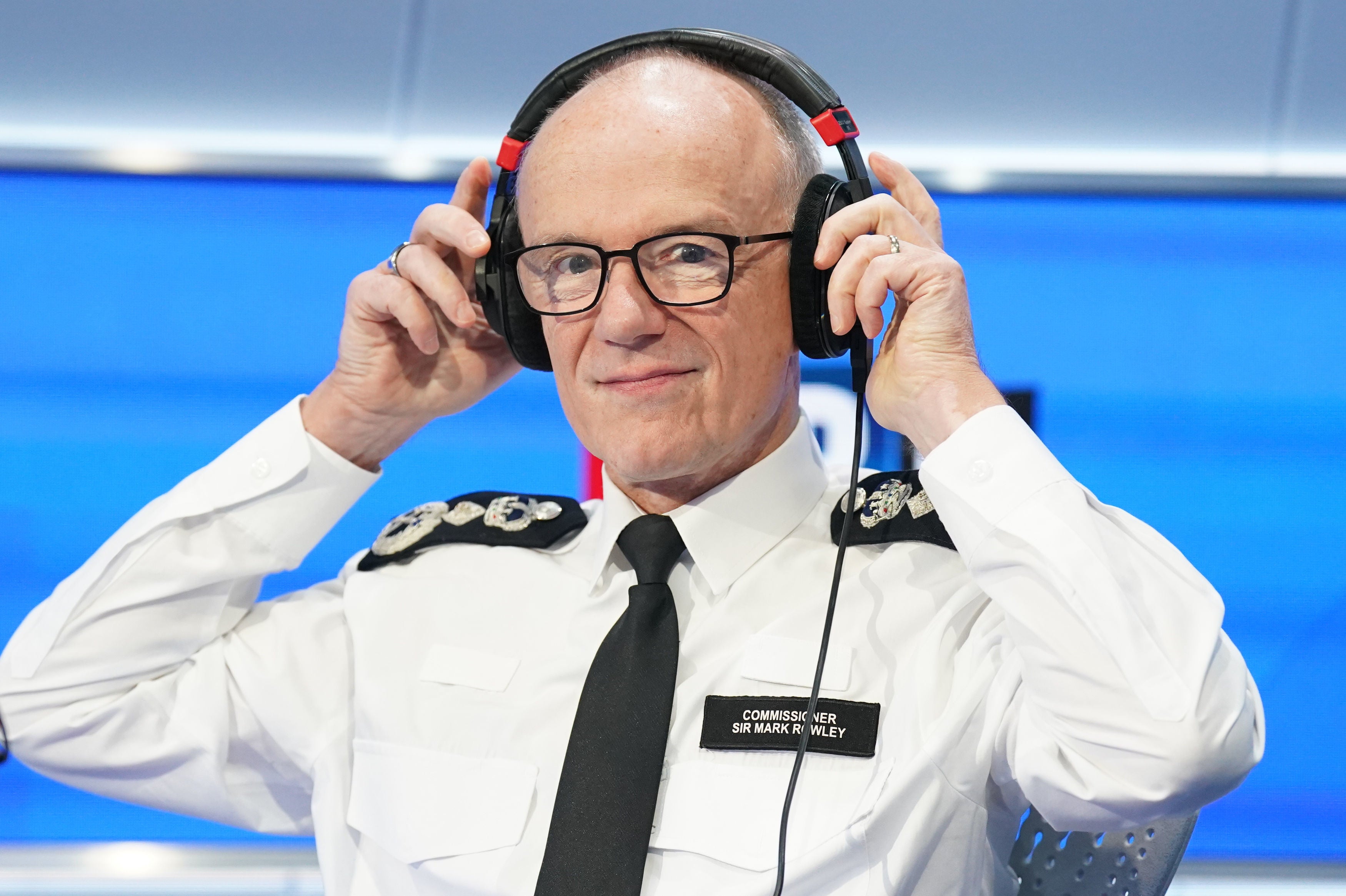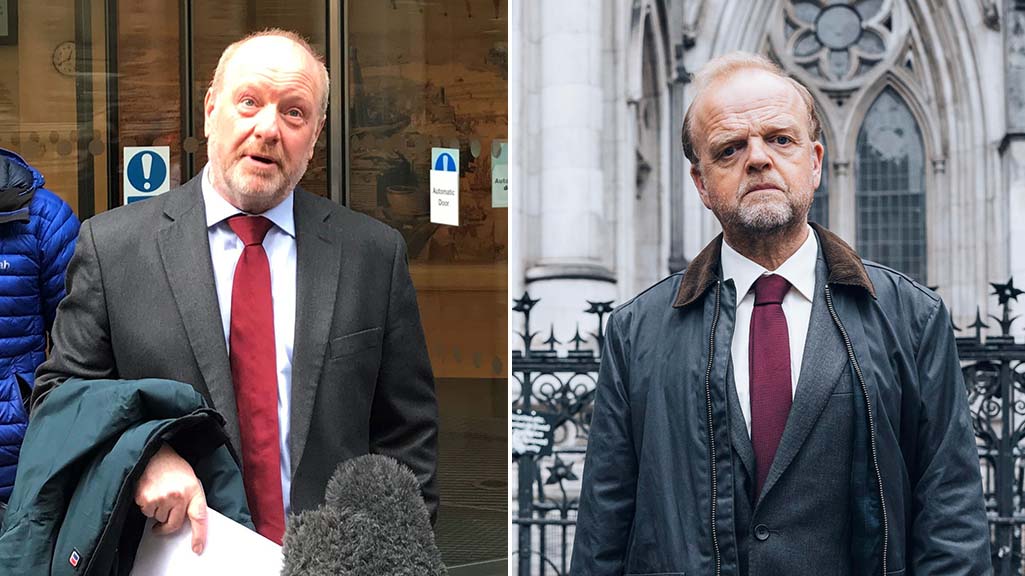Police investigation into Post Office Horizon scandal will take until ‘at least’ 2026, says Met chief
Met Commissioner Sir Mark Rowley said an ‘exhaustive’ investigation will not be completed for several years

An investigation into potential criminal offences linked to the Post Office/Horizon scandal will take at least until 2026, Britain’s most senior police officer has admitted.
Metropolitan Police commissioner Sir Mark Rowley said that an exhaustive nationwide investigation will take place to determine whether crimes have been committed. The investigation will follow the public inquiry into the scandal, which is due to publish its findings late next year.
He said detectives will have to trawl through tens of millions of documents in order to establish whether crimes such as fraud or perverting the course of justice took place. Officers will have to prove beyond reasonable doubt that there was “deliberate malice” on the part of alleged suspects.
Hundreds of subpostmasters were wrongly convicted of stealing after the defective Horizon accounting system, developed by Fujitsu’s ICL business, made it appear as though money was missing at their branches.
The Post Office also forced at least 4,000 branch managers to pay back cash based on the flawed data.

Sir Mark told LBC: “We’re now working with police forces across the country to pull together what will have to be a national investigation, which we’ll pull together because there’s hundreds of postmasters and mistresses from across the country.
“Fujitsu are based in one part of the country and the Post Office is in another part of the country; [it’s a] massive piece of work to do.
“There are tens of millions of documents to be worked through in a criminal investigation. And of course, we’ve got to do that following on behind the public inquiry, which I think finishes at the end of this year but won’t publish until late next year.”
He told host Nick Ferrari it would take until at least 2026 for the work to be completed. Proving criminal intent, if it existed, will need a detailed investigation that “won’t be quick”, he said.
“At the core of the issue you’ve potentially got fraud in terms of false documents if it’s for financial purposes, and you’ve potentially got perverting the course of justice if people have deliberately set in train evidence into a legal process which they know is false. That would be perverting the course of justice.
“To prove this to a criminal standard is different to what’s in a documentary. Clearly, we have to prove beyond all reasonable doubt, really 99.99 per cent, that individuals knowingly corrupted something. So that’s going way beyond incompetence, you have to prove deliberate malice, and that has to be done very thoroughly with an exhaustive investigation. So it won’t be quick.
“But the police service across the country is alive to this, and we will do everything we can to bring people to justice if criminal offences can be proven.”

The commissioner’s comments came as the government announced it had requested discussions with Fujitsu on the company’s contribution to the provision of compensation to subpostmasters. One of the tech giant’s executives this week told MPs it has a “moral obligation” to contribute to any redress.
The prime minister’s official spokesperson said on Wednesday: “The Department for Business and Trade has formally started the process of requesting discussions about how we explore that. The inquiry does need to establish the facts, but we’re keen to be as prepared as possible to act at the appropriate point.”
The official added: “It’s important that we don’t do anything that would jeopardise our approach, and we will set up these discussions so that we can move as quickly as possible, but it’s right that we establish culpability fully.”
The spokesperson declined to comment on the pace of the criminal probe in light of Sir Mark’s comments.
Meanwhile, the public inquiry into the scandal heard that Fujitsu, the IT firm behind the Horizon software, didn’t want to be “dragged” into the criminal prosecutions of the subpostmasters.
Data showing keystrokes from subpostmasters had previously been extracted and presented to the Post Office, but Fujitsu employee John Simpkins told the inquiry that the company had stopped offering to filter data after 2011, when emails showed requests to improve “functionality”.
Mr Simpkins told the inquiry it was “partially” because Fujitsu wanted to avoid being involved in criminal prosecutions of subpostmasters, and also because it was too difficult a process to carry out.
Software engineer Gerald Barnes told the hearing that error handling in Fujitsu “wasn’t as good as it could have been if designed properly from the start”, and that his concerns had been dismissed by colleagues.
In January 2008, Mr Barnes suggested a fix was needed to correct an error that affected subpostmasters when they balanced their accounts, but his request was refused because the problems were deemed a “rarity”.
Rishi Sunak announced earlier this month that MPs will pass a new law to exonerate those convicted because of the Horizon software, after ITV drama Mr Bates vs The Post Office shone a light on the plight of affected subpostmasters, whose fightback was led by Alan Bates.
There will also be a new upfront payment of £75,000 to those who were not convicted but were affected by the scandal.
However, No 10 has already admitted that it expects only around a third of the postmasters, who were forced to shell out huge sums during the debacle, to accept the £75,000 payment, and that many will push for more.
The Post Office has already conceded that it owes compensation to thousands of subpostmasters who were not convicted but were forced to pay back incorrect shortfalls – with 2,700 people so far offered an average of around £44,000 each in compensation.
Lawyers have also said that hundreds more victims who were caught up in the scandal could now come forward.
This week, Mr Bates warned that subpostmasters are dying while they wait for payments from the Horizon scandal compensation scheme, as he described the delays as “madness”.
